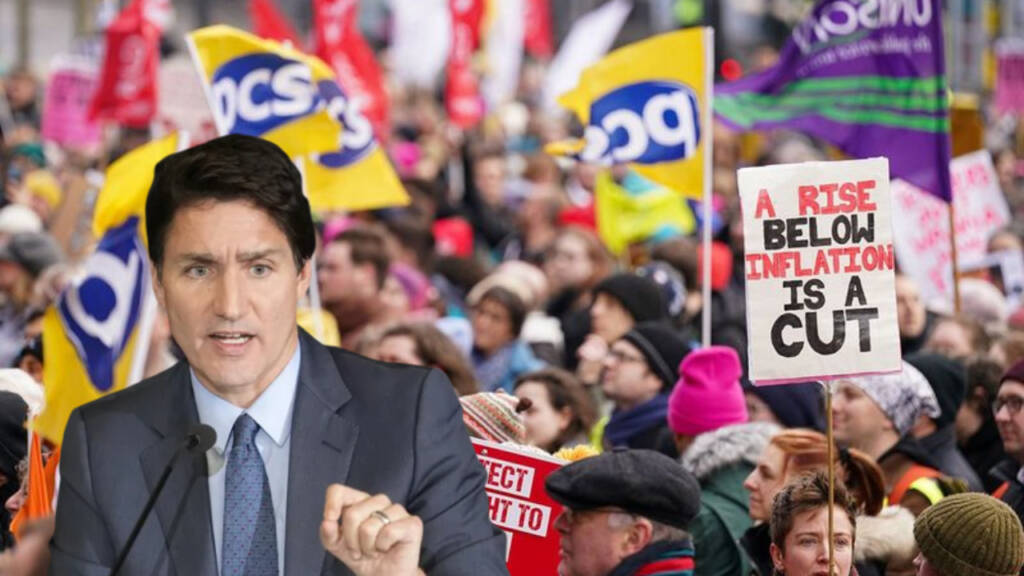Canada strike: Canada is a prosperous country with a strong economy and a high standard of living. However, like most countries, it is not immune to challenges that arise in the labour market. Recently, reports have emerged of Canadian workers being dissatisfied with the Trudeau government, as their demands for higher wages and better health benefits have gone unfulfilled. This has resulted in threats of strikes, which, if they occur, could severely impact the Canadian economy, which is already facing a number of challenges.
Recently, Workers at the Canada Revenue Agency (CRA) have voted in favour of strike action ahead of mediation talks set to take place later in April.
In a statement, the Public Service Alliance of Canada (PSAC), which represents 35,000 CRA employees along with its subsidiary the Union of Taxation Employees, stated its members have “overwhelmingly” chosen to go on strike. So, as of April 14, the PSAC will be in a lawful strike position.
Soon after, a union representing more than 120,000 federal public servants across Canada voted in favour of a strike.
The group of workers, called the Treasury Board group by the Public Service Alliance of Canada (PSAC), is now in a legal strike position as talks continue this week, national president Chris Aylward said in a news conference.
Read More: Hockey-123: Canadian Officials’ Passwords Prove Too Easy for Pro-Russian Hackers
You see, one of the main issues that Canadian workers are facing is stagnant wages. According to a report by the Canadian Centre for Policy Alternatives, between 1980 and 2015, the average hourly wage for Canadian workers increased by just 0.1% per year, after adjusting for inflation. This is in stark contrast to the period between 1945 and 1980 when wages increased by an average of 2.2% per year.
Another major concern for Canadian workers is the cost of healthcare. Despite the fact that Canada has a universal healthcare system, many workers struggle to afford the medications and treatments they need. This is particularly true for those who work in low-paying jobs, as they are often unable to afford private healthcare insurance.
In addition to these issues, there are also concerns about job security and working conditions. Many workers feel that they are being forced to work longer hours for lower pay and that their employers are not doing enough to ensure their safety and well-being. This has resulted in increased calls for stronger labour protections and better working conditions.
But their demands have fallen on deaf ears. The Liberal poster boy, Justin Trudeau who aspired to become a messiah for the subaltern has failed to take a single substantial step to uplift the conditions of the helpless workers.
According to a report by the Canadian Centre for Policy Alternatives (CCPA), titled “The State of Canadian Workers in 2020,” the Trudeau government’s response has been slow in implementing measures to protect workers’ health and safety during the pandemic.
Read More: The unfortunate repercussions of sanctions on Russia on common
Given these concerns, it is not surprising that Canadian workers are becoming increasingly frustrated with the Trudeau government. Many feel that their voices are not being heard and that their concerns are being ignored. This has led to threats of strikes, which, if they were to occur, could severely impact the Canadian economy.
In order to prevent this from happening, it is essential that the Trudeau government take steps to address the concerns of Canadian workers. This may include increasing the minimum wage, expanding access to healthcare, strengthening labor protections, and investing in job training programs. By doing so, the government can help ensure that Canadian workers are able to enjoy the same opportunities and standard of living that they have come to expect, while also helping to secure the long-term health of the Canadian economy.
https://www.youtube.com/watch?v=SXDq25ZcXuM&t=1s
